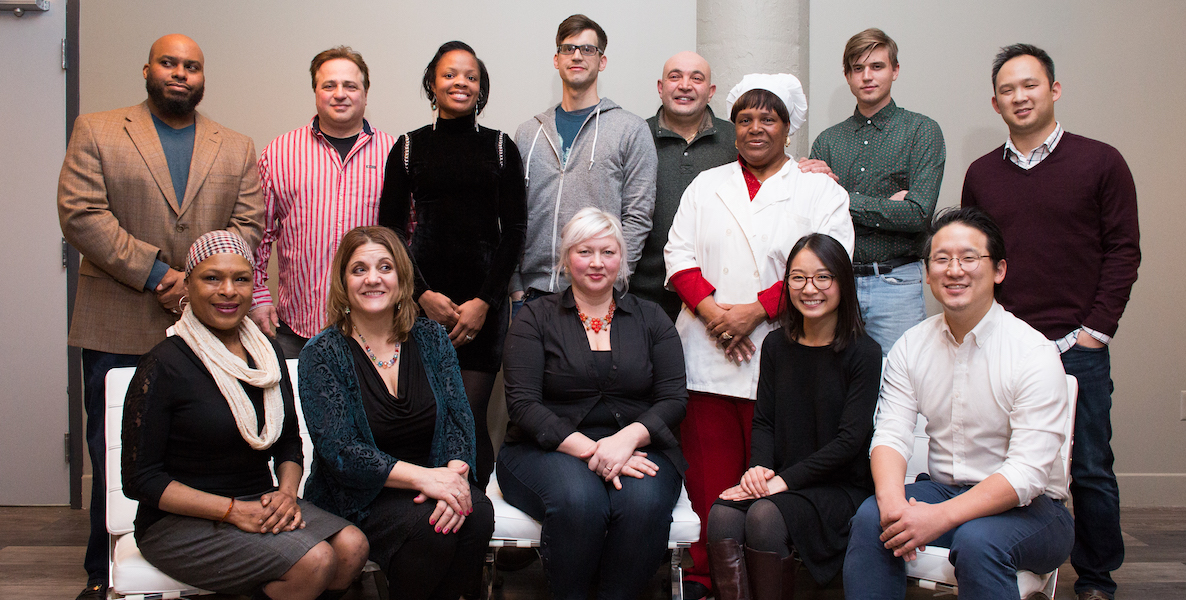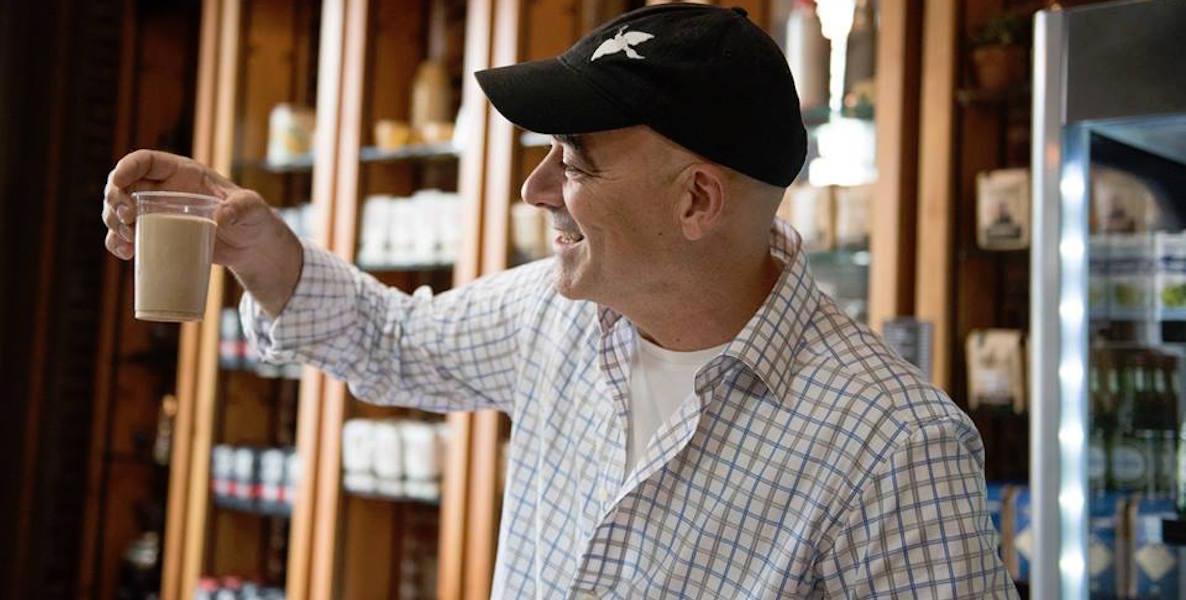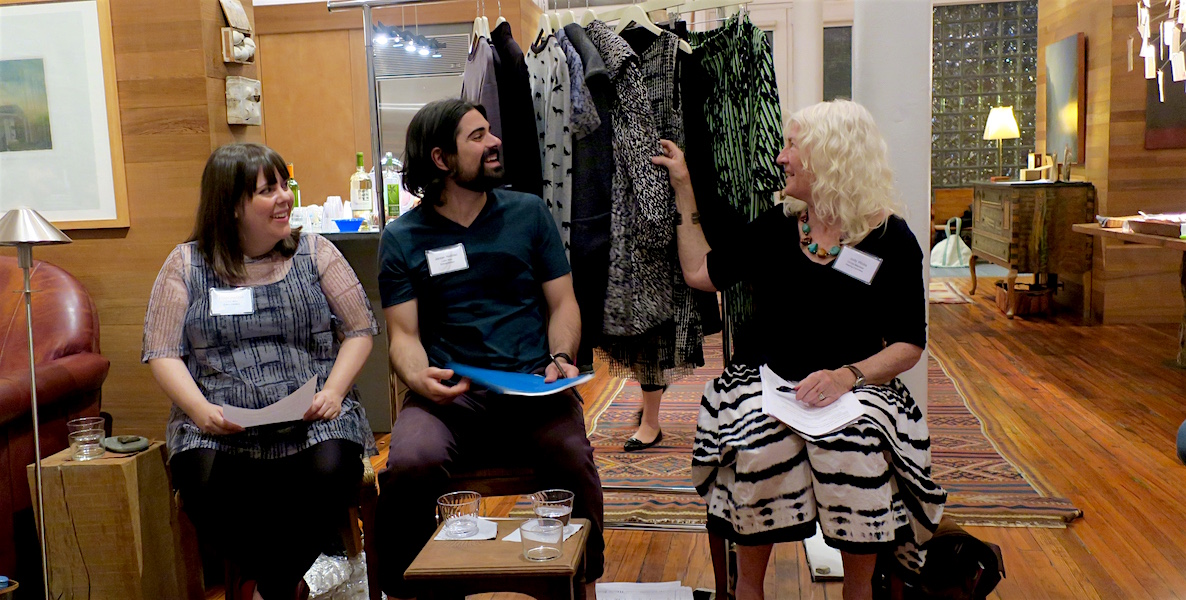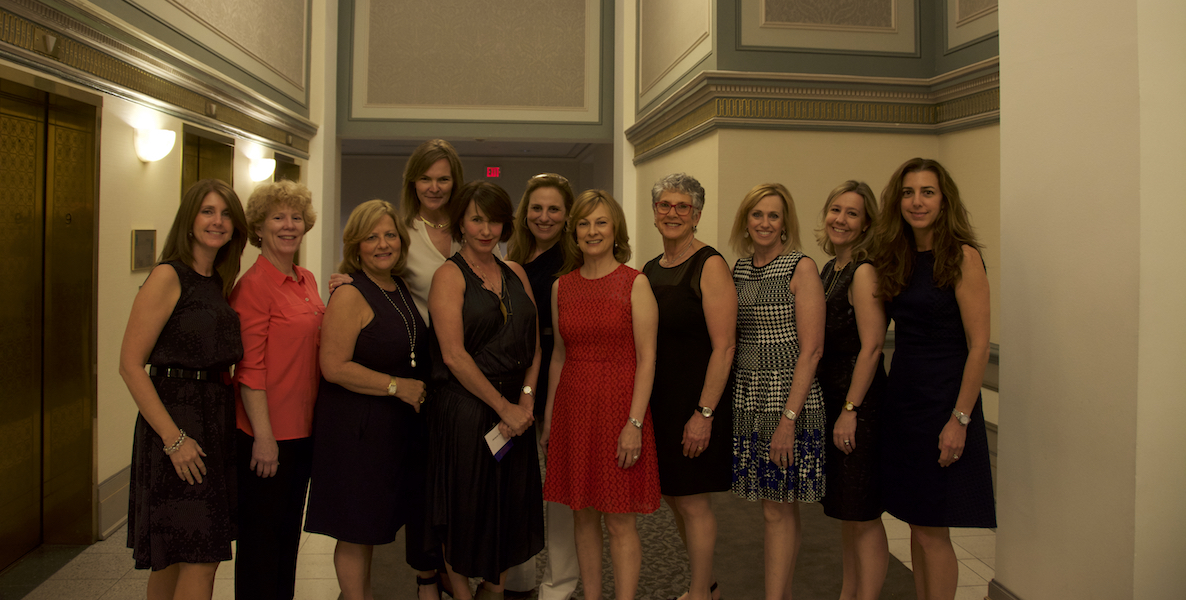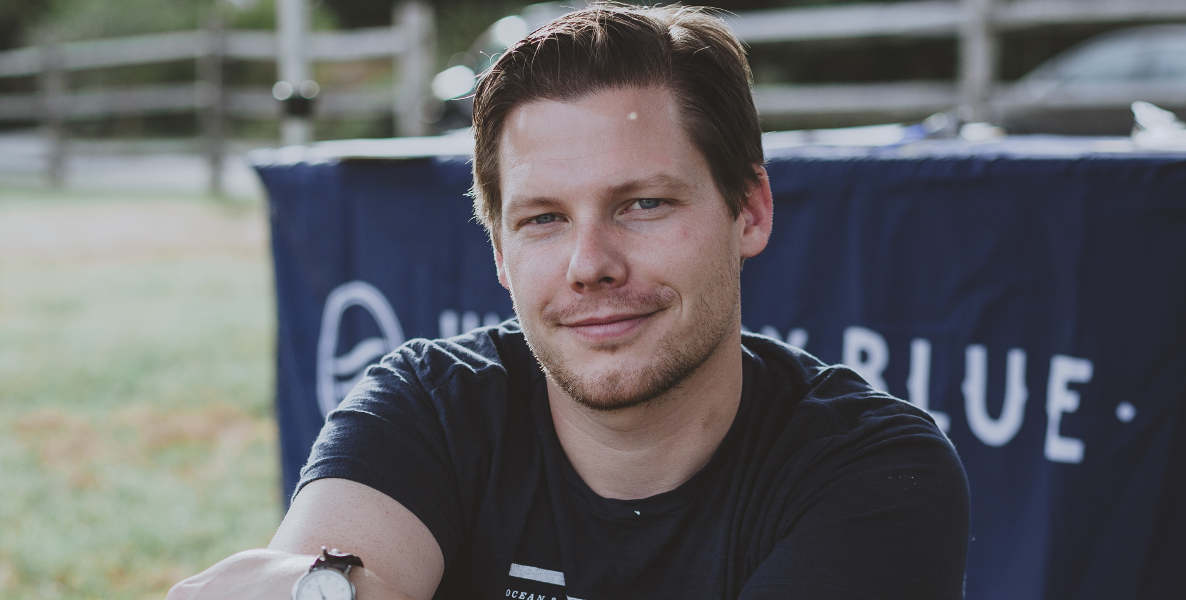On a recent late morning at United by Blue’s flagship location in Old City, around 20 people stood in line at the coffee bar, near full tables in the adjoining cafe. Brunch was being served, while the kitchen began preparing for a four-course dinner that was part of a charity event to be held at UBB that evening.
United By Blue is, of course, best known as a company that sells clothing–– Sign up for UBB's Saturday CleanupDo Something
The Citizen first wrote about Linton in 2015, five years after he founded UBB as a social enterprise to offer the world more than just t-shirts and outdoor gear. It was built with a mission, one that Linton has long been passionate about: To rid the world’s waterways of trash. With each product sold, UBB pledges to remove one pound of trash from a river, lake or ocean. Last year, the company removed 500,000 pounds of trash, a number Linton says he expects to double in 2018, using volunteers in cities around the country. In total, UBB has led 207 cleanups, removing 1,051,079 pounds of trash.
On Saturday, as part of Philly Spring Cleanup, UBB will lead its biggest event yet, with some 300 people already signed up to clean Cobbs Creek in West Philadelphia.
With the launch of its new flagship last fall, Linton—who in 2017 was named one of 19 social entrepreneurs to watch by Conscious Company Media—says UBB also launched a bigger mission: To build a community around the brand it created and the ideas it espouses.
That community—which Linton says is comprised of people who care deeply about leaving the world better than how they found it––has grown in the last few years, along with United By Blue. In 2018, Linton says, his company is on track to sell one million products—double last year’s sales, and it now has two retail shops in Philly and another in New York City. More locations, to Linton, means more destinations within neighborhoods, where those fighting for conservation can come together, and where neighbors can engage each other.
Last year, the company removed 500,000 pounds of trash, a number Linton says he expects to double in 2018, using volunteers in cities around the country. In total, UBB has led 207 cleanups, removing 1,051,079 pounds of trash.
In addition to coffee shops open every day, the shops also host classes like mushroom cooking and embroidery; the Philly flagship hosts monthly Supper Clubs, with seasonal and sustainable ingredients; the West Philly store has a monthly Green Screening, featuring documentaries about environmental and social issues. That shop also does a Blue Goat Life #SitWithSomeone event every month, which encourages people to sit with a stranger, slow down and try to “be the 100 percent unfiltered version of the real you.”
“We want [UBB] to be so much more than just a store,” Linton says. “We want it to be a community center, a space for events and activities. We want to engage the community that supports what we do. That’s really important, especially in Philadelphia. ”
When Linton, a Temple grad, opened UBB in 2010, it was one of the first social enterprises in the city, part of a larger movement equating people, profits and planet that was in its infancy. The company, a B Corps that has been named Best for the World two years running, was founded with a ‘you build it, they will come’ attitude, with UBB as a field of dreams for socially-minded Philadelphians who were ready to tackle the issues our world faced.
“The world is at a place in human history where businesses need to take a stand in social or environmental impact issues,” Linton says. “Everybody feels a call to action and people want to get involved now more than ever.”
Linton recalls those early days as a reaction to the Great Recession: Young entrepreneurs like him were tired of the traditional model of business, and wanted to break from the system that dragged them into the recession. To Linton and others, social enterprise was a way toward social and environmental progress. “We couldn’t rely on government or non-profits to come up with the answers anymore,” Linton says. “It’s up to the people and our willingness to roll up our sleeves and do what needs to be done.”
Eight years later, Philadelphia is a hub of socially-minded capitalism, including as home to the B Corp movement, and Linton says what was once a radical way to conceive of a business is now becoming much more the norm. “There is almost pressure on businesses to get involved now,” Linton says. “The world is at a place in human history where businesses need to take a stand in social or environmental impact issues. Everybody feels a call to action and people want to get involved now more than ever.”
Capitalism for GoodRead More
The company recently worked with its 10,000th volunteer, and employees of the growing company tend to be people with the mindset of an activist, often folks who never saw themselves working in a retail company like his. For Linton, this is the power of building a community.
“The city is making progress. We are close,” Linton says. “But there is still a lot of work to be done.”



